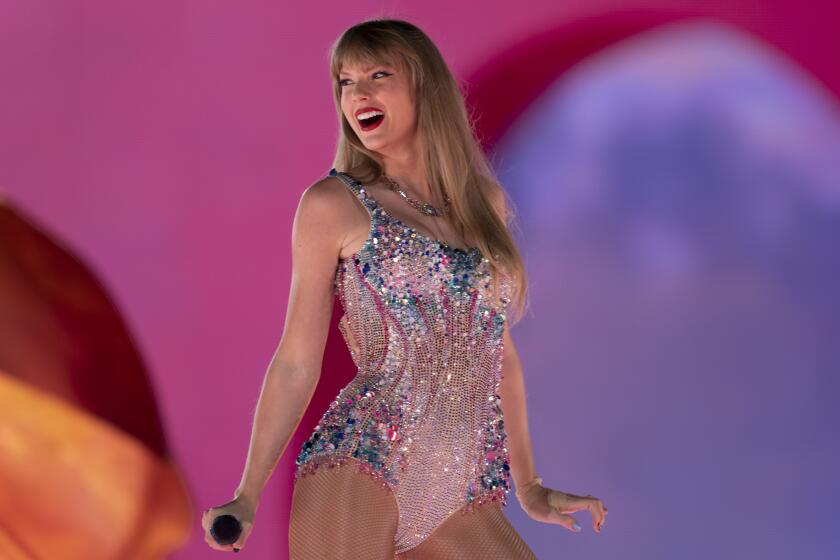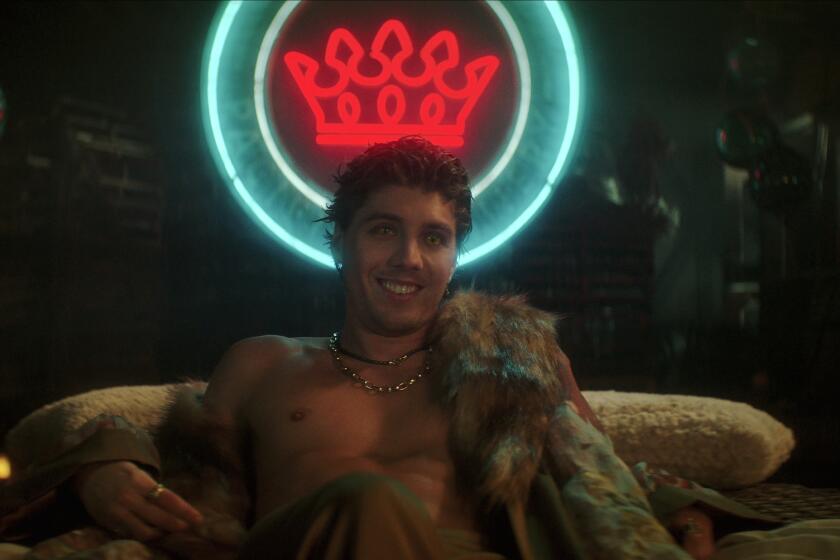New DirecTV chief looks beyond the fizz
Shortly after Mike White took over as chief executive of DirecTV, the former longtime PepsiCo executive discovered that the satellite broadcaster’s human resources department had carted away all the Coke machines from the company’s El Segundo headquarters.
“They pulled the machines without asking me, and I got complaints about it,” White laughingly recalled. “I said, ‘Put the Coke machines back.’ ”
Just as DirecTV went out of its way to make White feel welcome, he made a point of getting to know the people at his new employer. Taking a cue from “Undercover Boss,” the reality show in which big-shot executives take low-level jobs inside their own companies to better understand what their employees do, White answered phones at DirecTV’s call center and even climbed a few roofs to install satellite dishes.
“Until you walk in the shoes of the front line you don’t fully understand the business,” White said in an interview. “My first three weeks on the job here, I walked all 40 floors to see and understand the complexity of our business.”
White has traveled the country getting to know both his partners and competitors and earlier this month had his mogul status certified by being invited to the exclusive Allen & Co. Sun Valley conference, the annual gathering of media industry heavyweights that the investment bank hosts every July.
White took over DirecTV, the nation’s second-biggest pay television provider with almost 19 million subscribers, at a time of great uncertainty for the company. Not only does DirecTV have to hold on to its customers when a weak economy and the migration of TV shows to the Internet has many thinking about cutting the cord to their pay TV supplier, but it is also facing increased competition from telephone companies and rising programming costs.
If that’s not enough, Comcast Corp., the nation’s largest cable operator, is trying to take control of General Electric Co.’s NBC Universal. The deal would thrust one of DirecTV’s most important suppliers of programming — from the NBC network as well as cable channels including CNBC, USA and Bravo — into the hands of its main rival.
Company Town caught up with White to chat about the challenges facing DirecTV, possibilities for growth and why customers can’t subscribe only to the channels they watch. An edited transcript follows:
Your competitor Comcast is doing a deal with NBC Universal to get bigger in the content business. Do you think DirecTV needs to go down that road?
I suspect that by the time they get done with the Federal Communications Commission, whatever they might have liked to do, they won’t be able to do anyway. Our focus is to be the best provider of video anywhere and anytime our customers want it. I don’t see that owning content is a necessity for us to do a great job.
If making a content play isn’t key to DirecTV’s future, what is?
International, with a particular focus on Latin America. Also, there are certain commercial locations that we have under-penetrated, everything from gyms to doctors’ offices and apartment buildings.
Cable companies can offer phone service along with cable, enticing subscribers by providing both in a single package. You have marketing partnerships with phone companies, but ultimately do you feel you need a merger with a Verizon or an AT&T?
No, I don’t think so. We don’t comment on rumors, but certainly I believe our company is very well positioned. We can probably buy back a third of our stock in the next 18 months. With everything changing, we’ve got to be agile, innovative and continue to differentiate our service.
We are entering an age when people won’t need a subscription to cable or satellite to watch TV shows and movies. They can get it online. How do you keep subscribers from cutting the cord?
Have great content they can’t get elsewhere. For us, that first and foremost means sports. You see that with our NFL Sunday Ticket [a package that allows subscribers to watch every pro game]. We’ve just announced we’re picking up “Damages” for our 101 Network, a superb piece of television. We have a 3-D channel we’re excited about.
What’s your view of Hulu, which allows viewers to bypass cable and satellite to watch individual shows and movies?
There’s no doubt in my mind, having just spent 20 years at a company that made a fortune selling convenience foods and beverages, that it is not realistic to think you can force the consumer to only watch “60 Minutes” at 7 p.m. Sunday. Our challenge is … how do we broaden the options the consumer has for watching what they want, when they want, without undermining the economics of the business model that enables us to create great content and get that content delivered to the home.
Why can’t I just pay for the channels I want to watch?
My guess is if we went to that system you’d also have less choice because there would be fewer channels. I’m not one way or the other on whether we start to look at “a la carte” options, but I don’t think any of us understand all the unintended side effects. The system works to create enormous variety and diversity of content which would be reduced if you went toward just letting people only buy a couple of channels.
You’re a Pepsi guy. DirecTV is sort of the Pepsi to Comcast’s Coke. Is the goal to become the Coke of the distribution business or is that something you can’t bring yourself to say?
You know, I’m not so interested in being the biggest. We want to be the best. Everyone wants to be better. We have always built our strength not on being Coke, but on being the innovator and the disruptor with the best technology.
What’s the most Hollywood thing you’ve done since you’ve been out here.
I got a picture with Jennifer Lopez. People look at it and say, “Who’s that?” and I say, “It’s my friend.”
More to Read
The biggest entertainment stories
Get our big stories about Hollywood, film, television, music, arts, culture and more right in your inbox as soon as they publish.
You may occasionally receive promotional content from the Los Angeles Times.






